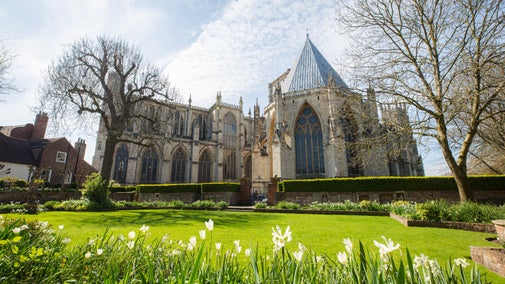All about Mr. Frank Green
Sitting on a Roman road with layers of history to share, step inside to uncover the story of Frank Green through 13 period rooms around the house.
Mr. Green was a wealthy industrialist from Wakefield, director of the family company and a passionate collector who renovated Treasurer’s House to showcase his collection in historical surroundings. He donated Treasurer's House to the National Trust in 1930. It was the first to be gifted to the charity complete with its collection.
An exacting man. A man with standards. A man with a vision. A man who saved several historic buildings in York.
An everlasting presence
When Mr. Green gave the house to the Trust it was under the condition that the rooms would be kept exactly as he intended. If any changes were made, he vowed to return to haunt the building.
Today, if items in the house have been moved or changed for conservation reasons, some of the spooky occurrences are said to be an angry Frank Green fulfilling his promise.
A firm set of rules
Frank Green liked things just so and had signs around the house to keep people in line, from slippers on workers to newspaper wrapped around the pieces of coal to prevent unnecessary noise.
One story says he emptied a full cutlery drawer out on the floor because it was too messy.
An entertaining man
Frank Green became known as a great host, perhaps to help firm his standing in society but also because he enjoyed the finer things in life.
From royal visitors, who still have rooms named after them, to the leading actors and actresses of the day, he put on grand, lavish affairs with staff and guests dressed up and musicians playing from the Minstrels’ Gallery.









